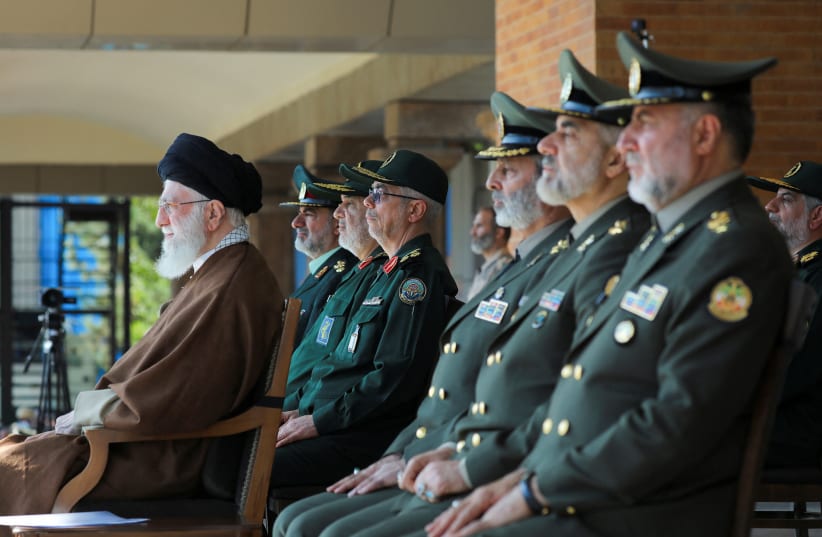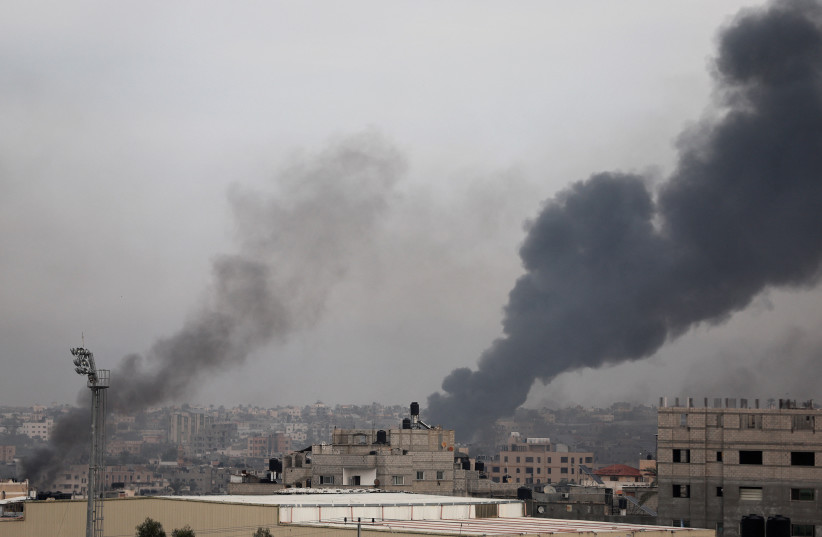Iran may have overplayed previous coverage accusing Israel of various “crimes” and now is setting its hopes on larger movements at the UN and in other spaces.
SETH J. FRANTZMAN
DECEMBER 13, 2023 02:55 Updated: DECEMBER 13, 2023 10:18

The UN General Assembly voted overwhelmingly on Tuesday for an immediate ceasefire in Gaza. Only a handful of countries opposed the vote and around twenty abstained. While many countries legitimately want a ceasefire, Iran’s strategy here is more complex.
Iran backs Hamas and other groups in the Middle East that have sought to leverage the Hamas attack on October 7 to its benefit. For instance, there have been almost eighty attacks on US forces in Syria and Iraq by the Islamic Republic’s proxies.
The Houthis in Yemen have attacked numerous ships. Iran is seeking to create instability and use it to threaten the US and Israel.
Therefore, Iran’s own views on the ceasefire and how the war might end in Gaza are important. Amid various reports about Hamas officials traveling this week, leaving Doha for some other destination; there are a lot of questions about what comes next in Gaza.
Hamas units in northern Gaza are under siege and being slowly defeated. The terrorist group in Khan Yunis and other areas is fighting to remain intact enough to control Gaza after the war. Clearly, Israel’s policy is not to let Hamas re-take control—but Hamas’s top leaders continue to hold sway in Gaza and abroad.

Even if the group lost 7,000 fighters, it has another 15,000 in some 20 battalions that continue to fight on in one form or another.
Iranian media’s perspective
What does Hamas pro-regime media say? Tasnim News on Tuesday evening had a number of articles indicating how Iran’s Islamic Revolutionary Guard Corps views the conflict. The first says that the IRGC spotlights differences between Israel’s Prime Minister Benjamin Netanyahu and the Biden administration. Another writes that the corps highlights Israeli concerns that the Jewish state’s goals won’t be met in Gaza. A third says that it notes new warnings to the US by Iran’s foreign minister. The fourth Tasnim article says that Israel is losing support globally due to “indiscriminate bombing.”
Fars News, which is also close to the IRGC in Iran, highlighted the UN vote in reports it put out in the early hours of Wednesday morning. Fars News also reported on the Iranian foreign minister’s trip to Switzerland and his comments slamming Israel.
The Iranian coverage of the war is interesting. It is not bragging about Hamas’s success. In fact, the terrorist group has also not been bragging about any successes recently. This means that Iran now knows it must gamble on a ceasefire and hope to influence world opinion against Israel in the next stage. It appears to think that Jerusalem is triumphing tactically in Gaza.
Although the operation has now reached day 68 of the war, Hamas cannot hold out forever. Iran appears to know this and it likely did not think the war would last this long. It operationalized the Houthis, Hezbollah and other threats, in order to distract from the war in Gaza. It wants a wider regional war.
So far, since Iran has not been able to draw the US or Israel into a wider conflict, it is concerned. Tehran now appears to think that it needs to focus more on the strategic global agenda and less on Hamas in Gaza. It wants to use the besieged coastal enclave and the suffering there for leverage. But even the suffering is not highlighted in the Iranian regime media. This is a new shift as well.
Iran may have overplayed previous coverage accusing Israel of various “crimes” and is now setting its hopes on larger movements at the UN and in other spaces, such as Iran-Russia ties. This is an important shift in the Islamic Republic’s narrative and worth paying attention to in the coming weeks.
Content retrieved from: https://www.jpost.com/middle-east/iran-news/article-777780.